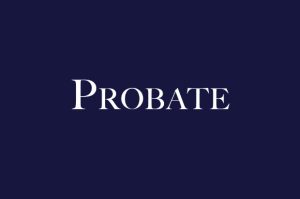2024 US Elections: Impact on Estate Planning in New York
As the 2024 US elections approach, significant policy shifts that may directly affect estate planning are on the horizon. Changes to estate and gift tax laws, modifications in healthcare funding, and adjustments to retirement plans could all play roles in shaping estate planning strategies for New Yorkers. At Morgan Legal Group, we understand the importance of staying informed about potential changes and preparing clients for any outcomes. Let’s explore how election outcomes could influence estate planning in New York, and what steps individuals should consider to safeguard their legacy.
Potential Policy Shifts in Estate and Gift Taxes
The outcome of the 2024 elections may directly impact federal estate and gift taxes, with potential effects cascading into state-level laws. Changes to tax exemptions, rates, and deductions could influence how individuals approach asset transfer and wealth protection strategies. Currently, the federal estate tax exemption sits at $12.92 million per individual, but this amount is subject to change depending on the political landscape.
What Could Change in 2024?
Both parties have proposed adjustments to the federal estate tax exemption. A reduction in the exemption limit would mean that more estates could become subject to federal taxes, increasing the need for strategic planning. For example, if the exemption were lowered to $5 million per individual, significantly more estates in New York would be affected. This scenario would require advanced planning through trusts and other tax-efficient structures to protect assets.
Gift Tax Considerations
Alongside estate taxes, the federal gift tax exemption is also at stake. Currently, individuals can gift up to $12.92 million over their lifetime without incurring federal taxes. A potential reduction in this exemption could limit options for tax-free wealth transfer. New Yorkers planning to make substantial gifts to family members may want to act sooner rather than later, depending on election outcomes.
Medicaid and Long-Term Care Implications
The elections may bring shifts in healthcare policy, especially concerning Medicaid. Long-term care costs are a major consideration in estate planning, as nursing home expenses can drain an individual’s savings if unplanned. The level of Medicaid funding and eligibility criteria could change, impacting how seniors in New York access healthcare benefits.
Anticipating Changes in Medicaid Policy
If funding for Medicaid programs decreases, eligibility requirements may become stricter, limiting access for certain individuals. Planning strategies such as Medicaid Asset Protection Trusts (MAPTs) can help shield assets from long-term care costs. However, these strategies must be implemented well before the need for care arises due to New York’s five-year look-back period.
Securing Long-Term Care with Early Planning
Waiting for policy changes can be risky. Establishing a plan now, with options like long-term care insurance and irrevocable trusts, can help avoid last-minute challenges. By working with an experienced estate planning attorney, New Yorkers can be better prepared for changes in Medicaid and other healthcare policies, regardless of election outcomes.
Retirement Accounts and Proposed Tax Adjustments
In recent years, retirement accounts such as IRAs and 401(k)s have faced changes through legislation like the SECURE Act. Future policy shifts could impact the tax treatment of these accounts, especially for high-income individuals. These accounts play a crucial role in estate planning, allowing for tax-deferred growth and, in some cases, tax-free inheritance for beneficiaries.
The Impact of Potential Changes to the SECURE Act
Under the current SECURE Act, inherited IRAs must be fully withdrawn within 10 years by most beneficiaries. Proposed changes could further limit this withdrawal period, potentially increasing the tax burden for heirs. Strategic planning, such as Roth IRA conversions or establishing trusts, can help mitigate the impact of any further restrictions on retirement accounts.
Wealth Transfer and Generation-Skipping Transfer Tax (GSTT)
The generation-skipping transfer tax (GSTT) affects transfers to grandchildren or beneficiaries more than one generation removed. Given the political climate, there may be proposals to alter the GSTT exemption, currently set at $12.92 million per individual. Any reduction in this exemption could have significant implications for wealth transfer strategies, especially for those looking to pass assets to grandchildren.
Why Plan Now?
With potential changes to GSTT on the horizon, New York residents with substantial estates should consider proactive strategies. Techniques such as dynasty trusts can help preserve wealth for future generations while minimizing tax exposure. Establishing a comprehensive estate plan now, before potential changes are enacted, ensures that wealth transfer goals remain intact.
How to Prepare for Potential Estate Law Changes
While the specifics of policy changes remain uncertain, there are steps New Yorkers can take to prepare. The following strategies can protect your estate from adverse impacts resulting from changes in tax laws and healthcare policies:
1. Review and Update Your Estate Plan
Frequent updates ensure that your estate plan reflects current laws and aligns with your goals. At Morgan Legal Group, we recommend revisiting your plan annually or whenever major life events occur. Reviewing your plan now allows you to adjust for potential policy changes after the 2024 elections.
2. Consider Trusts for Asset Protection
Trusts, such as irrevocable or revocable trusts, offer asset protection and can minimize tax burdens. For example, irrevocable trusts can keep assets out of your taxable estate, while revocable trusts provide control and flexibility. A trust can help ensure smooth wealth transfer, even if tax exemptions are reduced.
3. Make Gifts Before Exemptions Change
If tax exemptions decrease, gifts made beforehand will not be affected by the new limits. Many individuals take advantage of the current exemption by transferring assets now, safeguarding them from potential future taxes.
4. Establish Healthcare Directives and Powers of Attorney
Planning for incapacity is essential, especially with potential changes to healthcare policy. Healthcare proxies, living wills, and powers of attorney ensure that your medical and financial preferences are honored, even if you cannot make decisions yourself. These documents provide peace of mind, allowing you to navigate changes to Medicaid or long-term care policies confidently.
The Role of an Estate Planning Attorney in Uncertain Times
Navigating changes in estate and tax law can be challenging, especially during politically charged periods. An estate planning attorney provides invaluable guidance, helping clients understand how federal and state policies impact their assets and wealth transfer strategies. With our extensive experience in New York state law, Morgan Legal Group can tailor estate plans to minimize risks and take advantage of opportunities regardless of political shifts.
Why Choose Morgan Legal Group?
At Morgan Legal Group, we specialize in creating resilient estate plans that protect assets, minimize taxes, and ensure clients’ wishes are respected. Our proactive approach keeps clients informed about legal and policy developments, helping them make informed decisions for themselves and their families. With election outcomes uncertain, it is more crucial than ever to work with a trusted advisor who understands the intricacies of New York law and the nuances of estate planning.
Conclusion: Planning Amidst Political Uncertainty
While the 2024 US elections may bring changes to estate and tax policies, taking control of your estate plan now offers security and peace of mind. From revisiting asset protection strategies to updating healthcare directives, Morgan Legal Group can help New Yorkers prepare for any potential policy shifts. Our commitment to excellence and personalized guidance ensures that clients are equipped to navigate uncertain times, protecting their legacies for generations to come.









